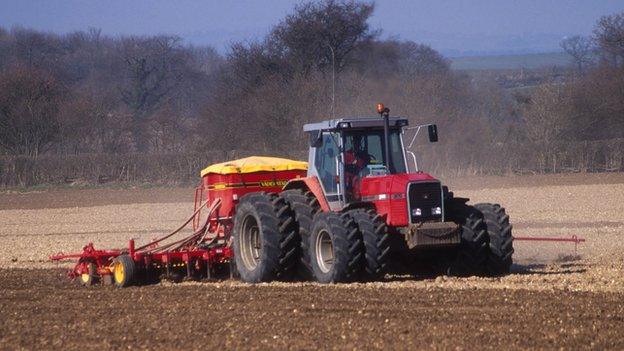Farm cash delays blamed on 'childish turf war' in Whitehall
- Published
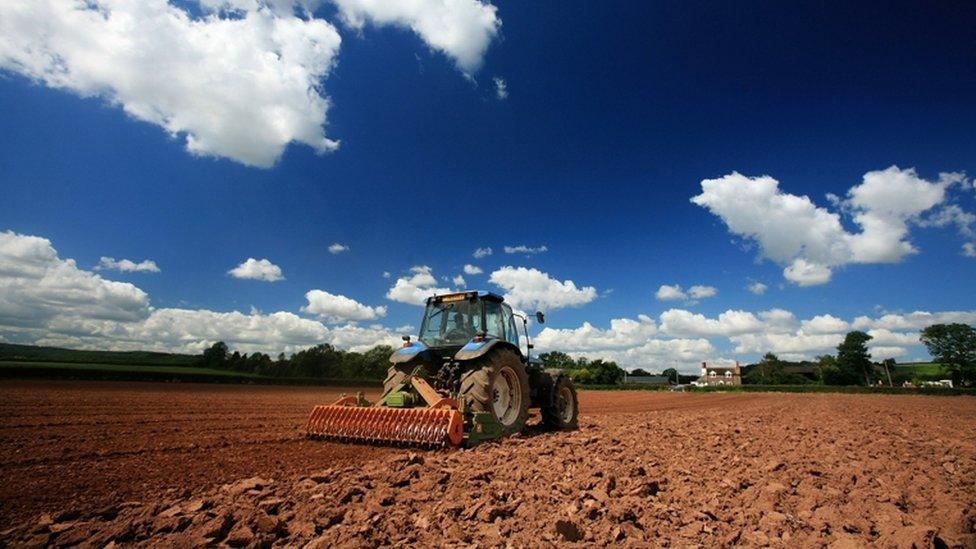
Unacceptable behaviour and rows between Whitehall officials have been blamed for delays in subsidies being paid to farmers in England.
The Public Accounts Committee said the Common Agricultural Policy delivery project was beset by a "childish turf war" at cash-strapped farmers' expense.
MPs said the "fiasco" could cost taxpayers hundreds of millions in spiralling costs and EU penalties.
The government said nearly all farmers would be paid by the end of the month.
A spokesman for the Department for Environment, Food and Rural Affairs said "the collective focus has always remained on getting payments out to farmers as quickly as possible".
But in a highly critical report published on Wednesday, the cross-party committee found that "repeated failures" meant "many farmers are paid later than in previous years... at a time when they are already suffering financially."
'Hindered delivery'
Under the CAP, which is an EU system of subsidies for farmers, about 105,000 payments totalling £1.8bn are paid to English farmers and landowners each year.
But the Public Accounts Committee said the three bodies responsible for handing over the money to UK farmers - the Department for Environment, Food and Rural Affairs, the Rural Payments Agency and the Government Digital Service - had been unable to work together effectively.
"Dysfunctional and inappropriate behaviours amongst senior leaders were inexcusable and deeply damaging to the programme... potentially costing the taxpayer hundreds of millions of pounds in financial penalties," it said.
"Highly paid public servants need to get the job done and such behaviour is unacceptable," the report added.
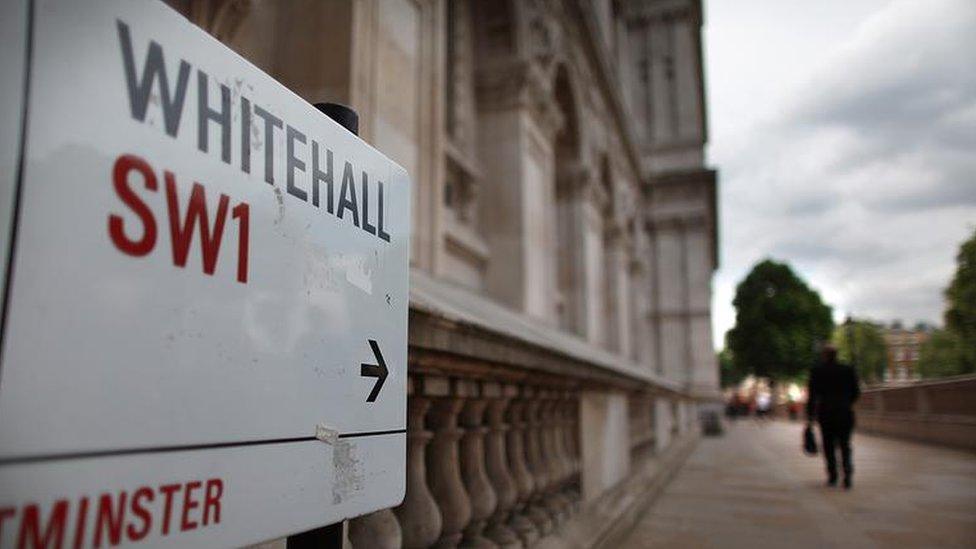
The committee said the "inexcusable" behaviour by officials was "deeply damaging" to the programme
The report said only 38% of payments were made under the Basic Payment Scheme on 1 December 2015 - compared with more than 90% in previous years.
It said in addition to the delayed payments, the cost of the programme had risen by 40% to £215m and penalties from the European Commission were "likely to increase further".
The report also criticised the Government Digital Service's focus on developing an online application system, saying it was "inappropriate for farmers, who have a lower average level of digital literacy", and given the "poor broadband coverage in many rural areas".
In March 2015 online applications were replaced by a "paper-assisted digital system" following repeated IT failures.
'Whitehall fiasco'
The committee concluded that the department should "review its approach to tackling serious failures of management" to ensure it cannot happen again.
It also called for "clear milestones" for when the department expects to pay farmers in future.
Meg Hillier, the Labour chairwoman of the committee, said: "This programme was set up to deliver support to UK farmers. Instead, it delivered an appalling Whitehall fiasco."
She added: "The enduring mental image is of managers, having seemingly lost sight of the purpose of the project, devoting their energies to a childish turf war instead.
"If the department is to build trust in this programme and other projects it first needs to rebuild trust with farmers."
A spokesman for the department said aside from the IT issues in March 2015 "the core of the system has always worked".
"Over 87,000 farmers registered on the system and it has been used to process and pay over 70,800 farmers - over 80% of all those eligible - their 2015 Basic Payment Scheme payment, totalling £1.11bn.
"Almost all farmers in England will be paid by the end of this month and the Rural Payments system has been further improved for 2016 to make it easier for farmers to apply for CAP payments," the spokesman added.
- Published30 September 2015
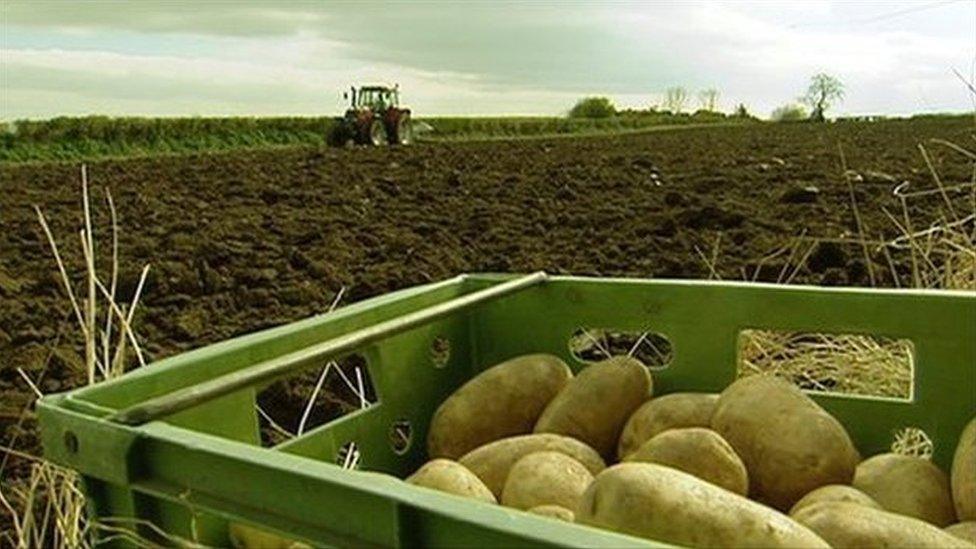
- Published12 October 2015
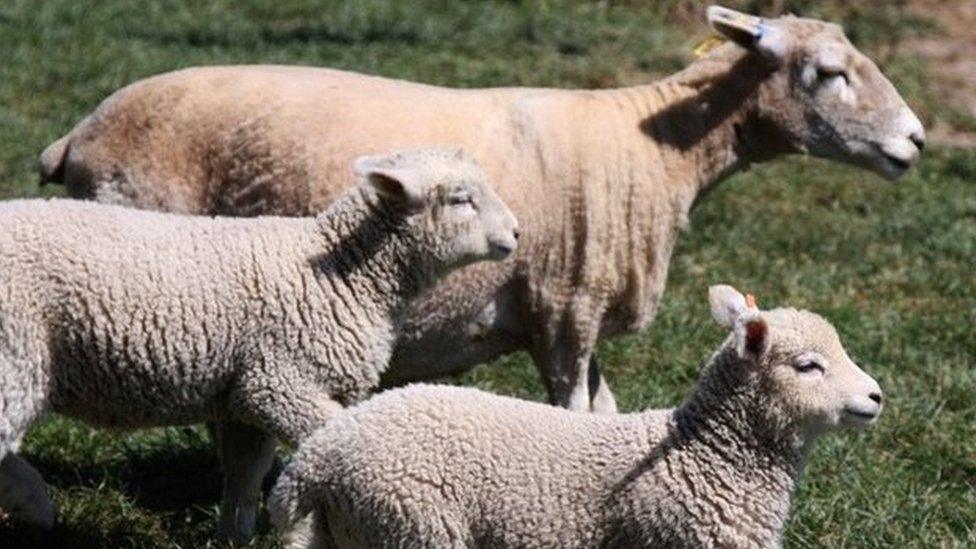
- Published24 October 2014
- Published20 March 2015
